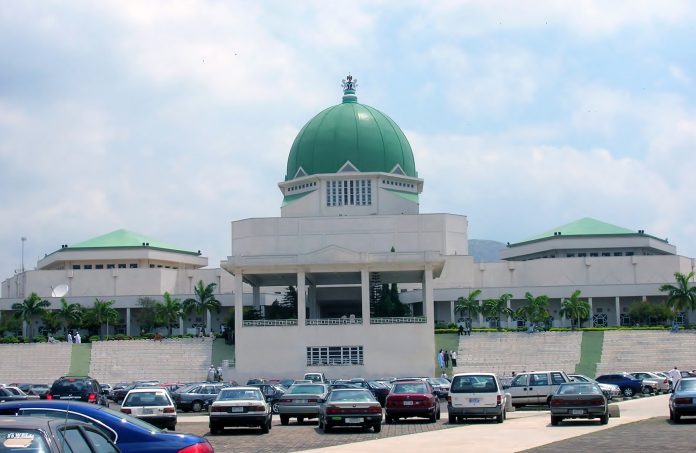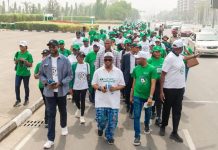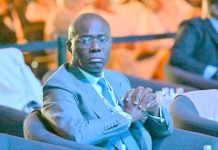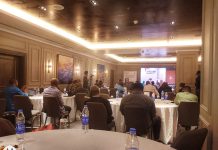In the heat of the debate over Electoral Act Amendment Bill and the propriety and workability of electronic transmission of result, the House of Representatives invited the Nigerian Communications Commission, NCC, the nation’s telecoms regulator.
The House also invited the Independent National Electoral Commission, INEC, to answer to some questions. But as it has now turned out, the invitation to NCC was needless, baseless and at best a futile exercise in red-herring. The NCC, it must be stated, is one of the best performing public institutions in Nigeria with its exemplary culture of good corporate governance noised abroad even as far as Switzerland, the head office of the International Telecommunications Union, ITU.
The NCC has over the years become a worthy Ambassador of Africa in the ITU family. It has not only represented Africa on the international circuit, it has sponsored young Nigerian techies and tech nerds to ITU-promoted competitions on innovation and in most cases, these fecund Nigerians have come out tops, beating competitors from Asia, Europe and the rest of the world. NCC has functioned as a truly independent regulator, inspiring confidence in investors, telecom consumers and other stakeholders including the media. It was therefore needless and a clear act of mischief to drag such an untainted commission into the nation’s murky political waters.
Dragging the commission to testify before the House on the feasibility of electronic transmission of results is mischievous on the part of the lawmakers. It’s a joke taken too far by a body that was supposed to understand the basics of the nation’s Grundnorm, the constitution. They feigned ignorance of relevant sections of the constitution just to scapegoat the NCC and make themselves look squeaky clean.
The Senate itself was fraudulent and duplicitous when it pushed the responsibility of Electronic Transmission of result to the NCC in spite of what the constitution says about the powers of INEC to determine the electoral process including the pattern of voting and mode of transmission of result. Some senators, including the Deputy Senate President, Ovie Omo-Agege, a man who once desecrated the hallowed chamber when he sponsored and promoted in broad daylight the ignoble venture of stealing the Mace, the symbolic authority of the Senate, were quick to quote obviously false statistics which they dubiously ascribed to the NCC. What a show of shame that persons elected to make laws for the good governance of the nation and who should know the rudiments of extant laws including the constitution would feign ignorance of aspects of the law that makes utter nonsense of their tomfoolery and moral somersaults in the chambers of the Senate.
For the avoidance of doubt, Section 78 of the Constitution provides that ‘The Registration of voters and the conduct of elections shall be subject to the direction and supervision of the Independent National Electoral Commission’.”
The Third Schedule, Part 1,F, Section15 says: “INEC has power to organise, undertake and supervise all elections to the offices of the President, Vice President, Governor and Deputy Governor of a state, and to the membership of the Senate, the House of Representatives and the House of Assembly of each state of the Federation.”

The Constitution further provides that INEC operations shall not be subject to the direction of anybody or authority.”
This, therefore, renders the action of the NASS nugatory. By inviting NCC and INEC shunning its own invitation, it appears the House was acting a devious and utterly treacherous script intended to do harm to the purity of the electoral process, and only conscripted NCC into the plot to draw legitimacy from the globally acknowledged good governance rectitude of the telecom regulator. It was a wrong decision meant to hoodwink Nigerians and clearly intended to make the lawmakers smell like rose flower while the NCC and INEC appear like villains of a political plot.
Electronic transmission of result is not rocket science. It is a universal norm in the 21st century. Smaller and poorer nations across the globe have achieved electronic transmission of result even with their limited infrastructure, Nigeria should not be an exception. It’s as simple as sending a text message, WhatsApp message or using any other platform recommended by INEC, not NCC, not NASS. Even if network is weak or non-existent in a particular unit, moving further away from such unit until you access a place of better network still will not vitiate the authenticity of the result already tallied at the polling units. The electronic copy only complements the physical copy which must have been signed by all agents relevant to the election. Electronic copy as a back-up copy helps to strengthen the electoral process and reduce incidents of ballot-snatching and primitive manipulation of the physical copy. There ought not to be a debate on this especially when INEC, the only body mandated by the constitution to organize, undertake and supervise all elections has categorically stated that it can achieve electronic transmission of results. The joke truly is on NASS and an inconsistent INEC
Author: Aliyu Momodu
Ovie Omo-Agege, a man who once desecrated the hallowed chamber when he sponsored and promoted in broad daylight the ignoble venture of stealing the Mace, the symbolic authority of the Senate, were quick to quote obviously false statistics which they dubiously ascribed to the NCC. What a show of shame that persons elected to make laws for the good governance of the nation and who should know the rudiments of extant laws including the constitution would feign ignorance of aspects of the law that makes utter nonsense of their tomfoolery and moral somersaults in the chambers of the Senate








